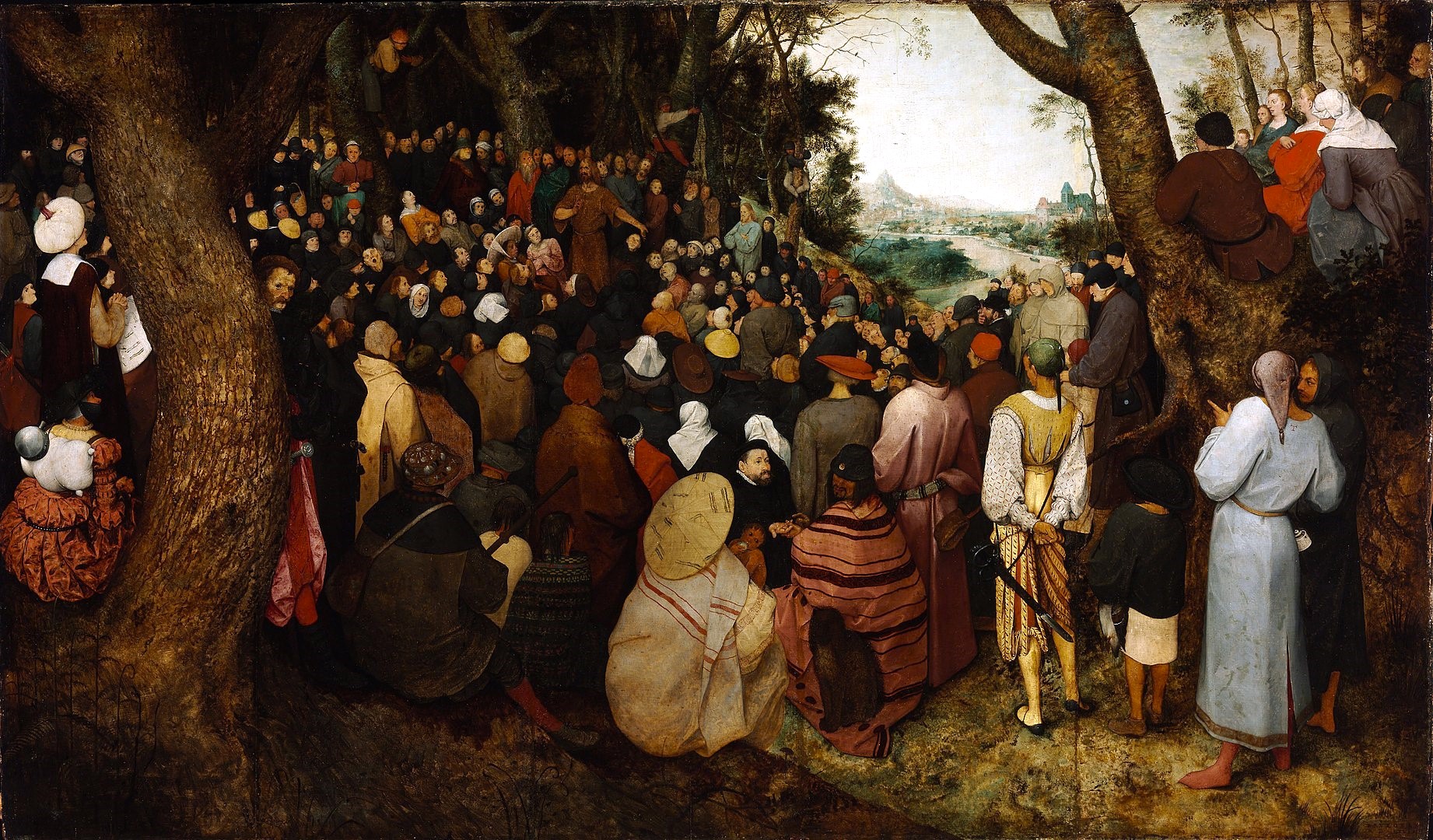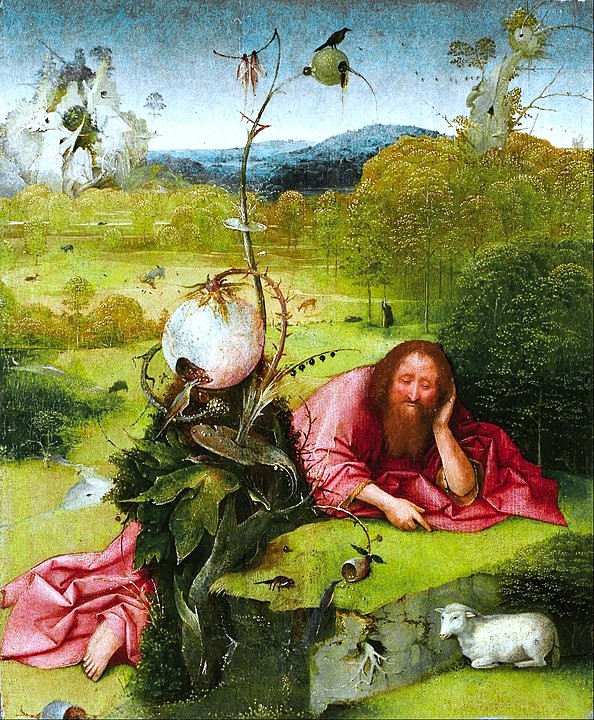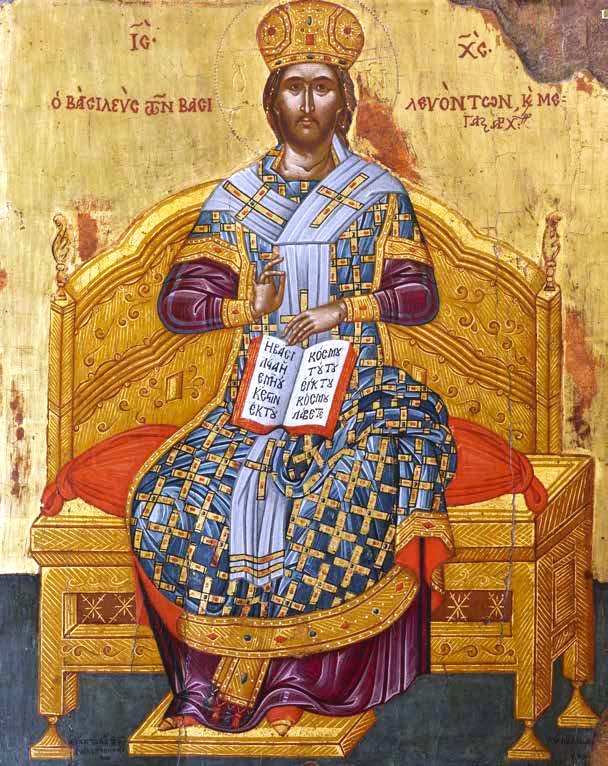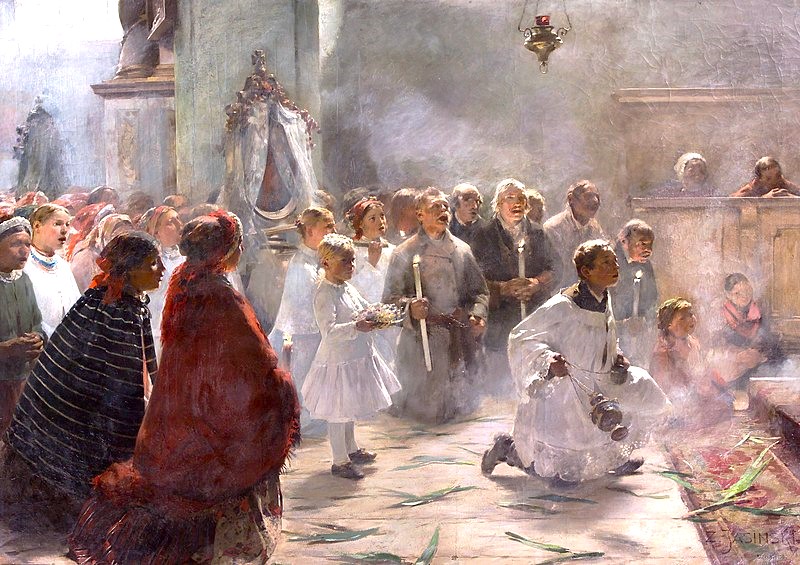Translation of the Holy Gospel According to John
At that time the Jews sent from Jerusalem priests and Levites to John, to ask him: Who art thou? And he confessed: I am not the Christ. And they asked him: What then? Art thou Elias? And he said: I am not. Art thou the Prophet? And he answered: No. They said therefore unto him: Who art thou, that we may give an answer to them that sent us? He said: I am the voice of one crying in the wilderness, Make straight the way of the Lord, as said the Prophet Isaias. And they that were sent were of the Pharisees. And they asked him, and said to him: Why then dost thou baptize, if thou be not Christ, nor Elias, nor the Prophet? John answered them, saying: I baptize with water: but there hath stood one in
the midst of you, whom you know not. The same is He that shall come after me, who is preferred before me: the latchet of whose shoe I am not worthy to loose. These things were done in Bethania, beyond the Jordan, where John was baptizing.
From Pope Benedict XVI’s Homily for the Third Sunday of Advent, 11 December 2011
Advent is precisely a time of waiting, of hope, and of preparation for the Lord’s coming. The figure and preaching of John the Baptist invite us to make this commitment, as we heard in the Gospel that has just been proclaimed. John had withdrawn into the wilderness to live a very austere life and to invite people to conversion, also by the example of his life. He conferred on them a baptism of water, a single rite of penance which distinguished it from the many rites of external purification of the sects of that time.
So who was this man? Who was John the Baptist? The response he himself gave is surprisingly humble. He was not the Messiah, he was not the light. He was neither Elijah come back to the earth nor the great prophet awaited. He was the Forerunner, a simple witness, totally subordinate to the One he proclaimed; a voice in the wilderness, as in our day too, in the wilderness of the great cities of this world, of the great absence of God, we need voices that simply announce to us “God exists. He is always near, even if he seems absent”.
John the Baptist was a voice in the wilderness and a witness to the light; and this moves our hearts, for in this world where there are so many shadows, so much darkness, we are all called to be witnesses of light. This is the mission of the Season of Advent itself: to be witnesses of light, and we can only be this if we carry the light within us, if we are not only certain that the light exists, but also that we have seen a ray of light.
In the Church, in God’s word, in the celebration of the sacraments, in the Sacrament of Confession with the forgiveness that we receive, in the celebration of the Blessed Eucharist where the Lord gives himself into our hands and hearts, we touch the light and receive this mission: to bear witness today that there is light, and to carry the light in our time…
Each one of you must feel you are an element of this living building [that is the Church]. The community is built with the contribution that each one makes, with the commitment of all; and I am thinking in a special way of the field of catechesis, that of the liturgy and that of charity: pillars that support Christian life… The challenge we are facing consists in planning and proposing a true and proper itinerary of formation in faith which involves all those who are receiving Christian initiation, helping them not only to receive the sacraments but to live them out, in order to be true Christians. This aim, to receive, must be to live: justice must sprout, just as the seed sprouts from the ground. Live the sacraments so that justice, law and love will sprout likewise.
In this regard, Christian initiation is a favourable opportunity to deepen and live the Sacraments we have already received — such as Baptism and Confirmation — and those we continue to receive for nourishment on our journey of faith, Penance, and the Eucharist. For this reason, necessary in the first place is attention to the relationship with God through listening to his word, through your response to the word in prayer and through the gift of the Eucharist.
[Parish prayer meetings, lectio divina, and organized Eucharistic adoration] are precious initiatives for spiritualgrowth at the personal and community levels. I warmly urge more and more of you to take part in them. In a special way I would like to recall the importance and centrality of the Eucharist. May the center of your Sunday be Holy Mass which should be rediscovered and lived as a day of God and of the community, a day on which to praise and celebrate the One who was born for us, who died and rose for our salvation and asks us to live together joyfully and to be a community open and ready to receive every person who is lonely or in difficulty.
Do not lose your sense of Sunday and be faithful to the Eucharistic gathering. The early Christians were prepared to give their lives for this. They realized that this is life and gives life.




